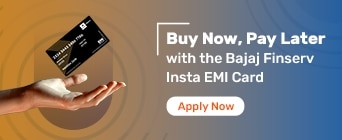Apple’s iPhone XR and iPhone XS, both launched in 2018, target slightly different users with their distinct features and price points. The iPhone XR vs iPhone XS debate often centers around display quality, camera capabilities, and overall design preferences. While the XR offers vibrant colors and a larger screen at a more affordable price, the XS boasts a more premium OLED display and dual-camera setup. This comparison will help you understand the key differences between the iPhone XS and iPhone XR to make an informed choice.
While both phones share the same powerful A12 Bionic chip but differ in display technology, storage options, and battery capacity. The iPhone XR offers a larger display and longer battery life, while the XS provides a sharper OLED screen and more storage options.
Specification |
iPhone XR |
iPhone XS |
Display |
6.1-inch Liquid Retina HD LCD |
5.8-inch Super Retina OLED |
Processor |
Apple A12 Bionic |
Apple A12 Bionic |
Storage Options |
64GB / 128GB |
64GB / 256GB / 512GB |
Rear Cameras |
Single 12 MP (f/1.8) |
Dual 12 MP (Main f/1.8 + Telephoto f/2.4) |
Front Camera |
7 MP (f/2.2) TrueDepth |
7 MP (f/2.2) TrueDepth |
Battery Life |
Up to 16 hours video playback |
Up to 14 hours video playback |
Connectivity |
4G LTE, Wi-Fi 5, Bluetooth 5.0 |
4G LTE, Wi-Fi 5, Bluetooth 5.0 |
Operating System |
iOS 12 (upgradable) |
iOS 12 (upgradable) |
Weight |
194 grams |
177 grams |
The design and build quality of a phone affect both aesthetics and usability with respect to the user. While the iPhone XS offers a more compact, premium build with stainless steel and better water resistance, the XR appeals with its variety of vibrant colors and larger size.
Feature |
iPhone XR |
iPhone XS |
Dimensions |
150.9 x 75.7 x 8.3 mm |
143.6 x 70.9 x 7.7 mm |
Weight |
194 grams |
177 grams |
Build Material |
Aluminum frame |
Stainless steel frame |
Body Finish |
Glass front & back |
Glass front & back |
Colors Available |
Black, White, Blue, Yellow, Coral, Red |
Space Gray, Silver, Gold |
Water Resistance |
IP67 (up to 1m for 30 mins) |
IP68 (up to 2m for 30 mins) |
The iPhone XS features a dual-camera system with optical zoom and better portrait mode, while the XR relies on a single lens with software tricks for background blur. While both phones capture excellent photos, the XS’s telephoto lens allows for more versatile photography.
Feature |
iPhone XR |
iPhone XS |
Rear Cameras |
Single 12 MP Wide (f/1.8) |
Dual 12 MP (Wide f/1.8 + Telephoto f/2.4) |
Optical Zoom |
1x optical zoom only |
2x optical zoom in/out |
Night Mode |
No |
No |
Deep Fusion |
No |
No |
Front Camera |
7 MP (f/2.2) |
7 MP (f/2.2) |
Video Recording |
4K video at 24/30/60 fps |
4K video at 24/30/60 fps |
Both phones run on the same A12 Bionic chipset, ensuring smooth performance. However, the XR’s battery provides longer usage times despite its LCD display.
Feature |
iPhone XR |
iPhone XS |
Chipset |
Apple A12 Bionic |
Apple A12 Bionic |
Processor |
6-core CPU, 8-core Neural Engine |
6-core CPU, 8-core Neural Engine |
Battery Life (Video) |
Up to 16 hours |
Up to 14 hours |
Battery Life (Audio) |
Up to 65 hours |
Up to 60 hours |
Charging |
Qi wireless charging, fast charging with 20W or more |
Qi wireless charging, fast charging with 20W or more |
Connectivity |
4G LTE, Wi-Fi 5, Bluetooth 5.0 |
4G LTE, Wi-Fi 5, Bluetooth 5.0 |
Both phones launched with iOS 12, support Face ID, and offer a similar software and security experience. However, the XS benefits from a stainless steel frame and slightly better water resistance. Its OLED display also supports HDR content for richer visuals.
Feature |
iPhone XR |
iPhone XS |
Operating System |
iOS 12 (upgradeable) |
iOS 12 (upgradeable) |
Biometric Security |
TrueDepth Face ID |
TrueDepth Face ID |
Display Features |
True Tone, Wide color (P3) |
True Tone, Wide color (P3), HDR |
Connectivity |
4G LTE, Wi-Fi 5, Bluetooth 5.0 |
4G LTE, Wi-Fi 5, Bluetooth 5.0 |
Other Features |
Haptic touch, Supports Dolby Vision |
3D touch, HDR with Dolby Vision |
The iPhone XR remains more budget-friendly, while the XS commands a more premium price for its advanced features and build quality.
Model |
Storage |
Price |
iPhone XR |
64GB |
₹47,900 |
iPhone XR |
128GB |
₹52,900 |
iPhone XR |
256GB |
₹91,900 |
iPhone XS |
64GB |
₹89,900 |
iPhone XS |
256GB |
₹1,03,900 |
iPhone XS |
512GB |
₹1,34,900 |
Disclaimer: Prices mentioned are approximate and may vary as per configuration, region, and available offers. Please check Apple’s official website for up-to-date pricing.
Choosing between the iPhone XR vs iPhone XS depends on your priorities. If you want a larger screen, longer battery life, and a vibrant color palette at a lower price, the XR is a strong contender. However, if you prefer a more compact phone with a premium OLED display, dual cameras with optical zoom, and better water resistance, the XS is worth the extra investment. Both phones deliver excellent performance with the A12 chip, so your decision should focus on design preferences and camera needs.
Financing options like the Bajaj Finserv Insta EMI Card can help you own the phone you want without upfront financial pressure.
Purchasing your preferred iPhone model is simpler with the Bajaj Finserv Insta EMI Card. Benefits include:
Pre-approved Usage Amount: Instantly access a loan amount up to ₹3 Lakhs for convenient purchases.
Extensive Acceptance Network: Use your card at over 1.5 lakh partner stores online and offline across India.
Flexible Repayment Tenures: Choose EMI tenures going up to 60 months to suit your budget.
Easy EMIs: Convert purchases into easy EMIs with flexible terms and low interest rates.
End-to-End Digital Process: Apply and manage your EMI Card online quickly and hassle-free.
Related to Bajaj Finserv EMI Network Card
- Bajaj Finserv EMI Network Card Login
- Bajaj Customer Portal
- Apply for Bajaj Finserv Insta EMI Card
- Eligibility For Bajaj Finserv EMI Network Card
- Bajaj Finserv EMI Network Card Benefits
- Bajaj Finserv EMI Network Card Charges
- Bajaj Finserv EMI Network Card Offers
- Bajaj Finserv Partner Stores
- No Cost EMI
- EMI Without Credit Card
- EMI Card VS Credit Card
- Bajaj Finserv EMI Network Card Accepted Shops
- Check EMI Network Card Details
- Bajaj Finserv EMI Network Card Statement
- Bajaj Finserv EMI Network Card Cash Withdrawals
- Bajaj Finserv EMI Network Card Limit
- Bajaj Finserv EMI Network Card Status
- EMI Network Card FAQs
- Unblock EMI Network Card
- Interest on EMI Network Card
Manage your EMI Network Card
- How to Activate Bajaj Finserv EMI Network Card?
- How to Increase Bajaj Finserv EMI Network Card Limit?
- How to Use Bajaj Finserv EMI Network Card?
- How to get Bajaj Finserv EMI Network Card number?
- How to Check EMI Network Card Balance?
- How to Change the Bajaj Finserv EMI Network Card Pin?
- How to Get the Bajaj Finserv EMI Network Card Pin?
- How to Change the Registered Bajaj Finserv EMI Network Card Phone Number?
- How to Check the Bajaj Finserv EMI Network Card CVV Online?
- How Does No Cost EMI Work?
Our Nearby Partners
- No Cost EMI at Amazon
- No Cost EMI at @Home
- No Cost EMI at Flipkart
- No Cost EMI Goibibo
- No Cost EMI at Hometown
- No Cost EMI at MMT
- No Cost EMI at Xiaomi
- No Cost EMI at Oneplus
- No Cost EMI at Oppo
- No Cost EMI at PayTm
- No Cost EMI at Pepperfry
- No Cost EMI at Realme
- No Cost EMI at Samsung
- No Cost EMI at Vivo
- No Cost EMI at Yatra
FAQs
What is the major difference between iPhone XR vs iPhone XS?
The iPhone XS has a smaller OLED display, dual rear cameras with optical zoom, and better water resistance, while the XR offers a larger LCD screen, longer battery life, and more color options.
Is iPhone XS worth more than iPhone XR?
Yes, the iPhone XS is priced higher due to its premium OLED display, dual-camera system, and stainless steel build.
Is the iPhone XS's battery life significantly better than the iPhone XR?
No, the iPhone XR actually provides longer battery life thanks to its more opimised battery and a less power-consuming LCD display.
How does the display quality of the iPhone XS compare to the iPhone XR?
The XS features a sharper, more vibrant OLED screen with better contrast and HDR support, while the XR uses an LCD panel with slightly lower resolution and brightness.
Are there any new features in the iPhone XS not available in the iPhone XR?
Yes, the XS has a telephoto lens for optical zoom, better water resistance (IP68 vs IP67), and a stainless steel frame.
Is the iPhone XS worth the upgrade from the iPhone XR?
If you value a premium display, enhanced camera capabilities, and a more compact design, the XS is worth the upgrade; otherwise, the XR remains a solid, cost-effective choice.






